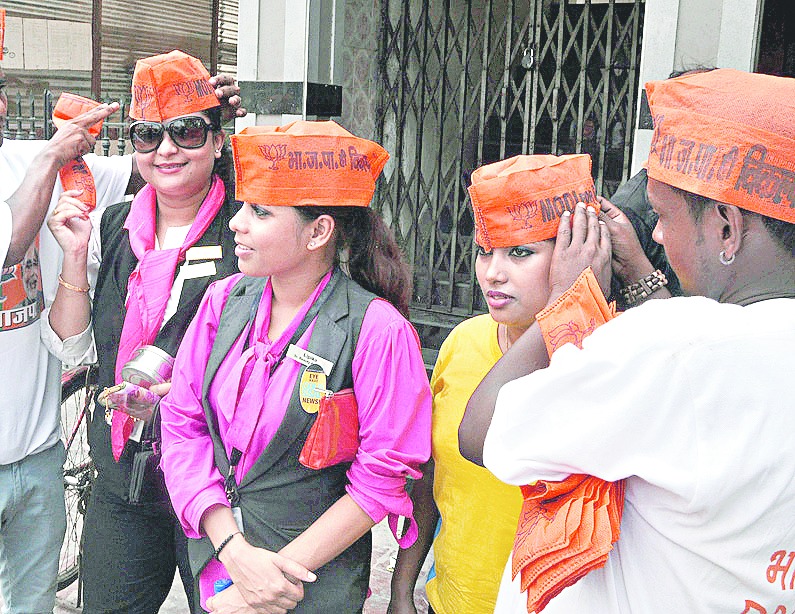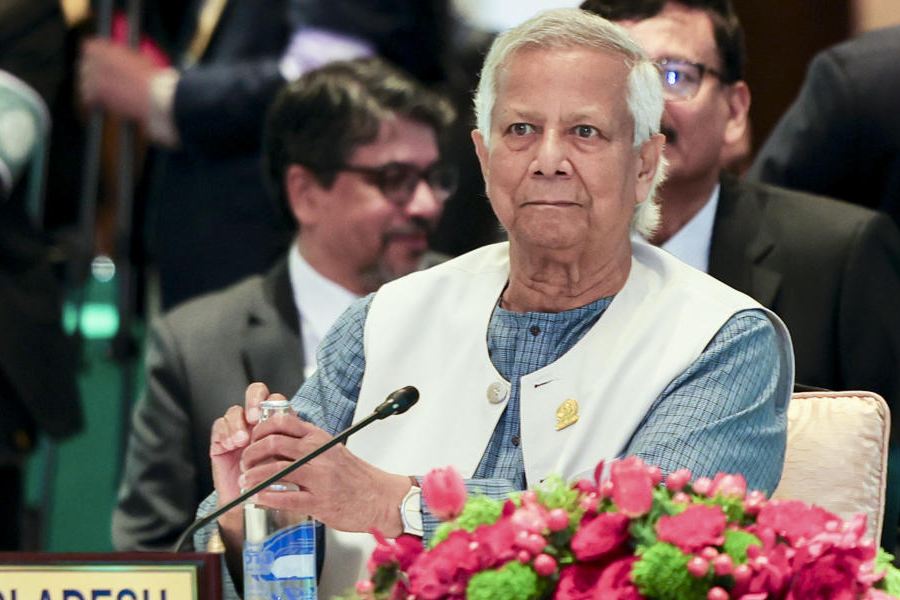
The memories seem to come from another lifetime: roughly 40 years ago, finishing high school, returning to Calcutta and waiting to join college. The sense that the long-simmering interest in the opposite sex, overwhelmingly theoretical till then, contained to batting ideas and fantasies back and forth between oneself and other boys, was about to transform from dream into actual practice. The hope and fear woven together, that the period of adolescence was almost over, that from now on we would be dealing with the 'real thing', that is, adult verbal and physical interaction with actual girls. The first shock of a look returned, or of your words linking with the other person's to create pleasurable synthesis, the first tripping over from eyes, voice and written word into bodily contact. Nothing prepares you for the thrill of that first erotic touch, the first time your body feels desire unmistakably reciprocated by another body. It's one of the most beautiful and joyously fulfilling experiences that you as a human can have in your life.
And yet, this was Calcutta in 1977, in 1978 and 1979. In almost every stratum of society, in almost every section of every class, this touch, this exchange was contraband. You didn't talk about it, you didn't acknowledge it, you didn't admit to knowing anything about it at all; if you were fortunate enough to find someone who reciprocated your feelings and your urges, you smuggled time together alone and you smuggled touch, as you would drugs or gold or guns. You hid any contact from sight, you covered it up with innocuous textures, you made secret receptacles of location, secret compartments in the day's routine, and you tried to slip this pleasure past the customs cordons of family, teachers, even friends and the general, seemingly jobless, balefully over-attentive public. In a starvation economy, you would survive for weeks on rides taken in over-crowded buses, pressed up against each other but also against everybody else. Being able to hold hands freely became a gift, an actual, unfettered embrace a small lottery win, a proper kiss a maddening feast that teased your under-nourished soul for days afterwards.
For those who were born much later, I have two images from that time. A young couple, a girl and a boy, go sit on the grass by Rabindra Sarobar in the late afternoon. They don't touch or hold hands, but they take pleasure in sitting close together. A young man comes and crouches next to them, offering them chana jor garam. The pair refuse. In a low, nasty voice the man tells them they have to buy a packet - for twenty-five rupees. He points to a policeman loitering under a tree - if they don't pay, the mama will arrest them for obscene behaviour; parents will get involved. The couple pay up. On another afternoon, two young men walk by outside the Victoria Memorial, on the grassy patch across the road from the planetarium. The younger of the two notices a row of working class men crouched, unmoving, at the short pillars of the Memorial periphery, all of them facing into the Memorial gardens. "Why are these people taking so long to urinate?" he asks his older friend. "Oh, they aren't urinating, they are spying on the couples sitting on the Memorial grounds. The cops charge them 25 paise or something and they watch for a bit. Sometimes they pleasure themselves."
Driving at night with a bunch of rowdy friends, a bubbly older girl from the group points to a girl and boy walking furtively, hand in hand. As we come close, she leans out of the window and shouts, " Baba ke boley debo - I'll tell your dad." The couple leap apart, as if an electric shock has hit them. This Baba, this fear of Ma or Mashima or parar lok pervaded everything. Above them were the dour guardians of public morality, the Stalinist commissars who hunted the ashlil (the obscene) and apashanskriti and found it in everything, in Western style singing, in dancing to music, in films, theatre and books. It was fine if in the films of Gutiérrez Alea Cuban comrades could dance to salsa with abandon, women and men openly expressing incredible rhythmic desire, it was progressive if Czech teenagers made love on the screen, or if Russians skinny-dipped in ponds in mixed groups, but this was not for our youth, who had to be corralled into a moral compound by the peculiarly metastasized Victorian-Brahminical mores of the Left Front.
In other Indian cities the situation varied. If, in Ahmedabad, couples perched on parked scooters, facing away from a darkened lane towards the wall of the Law College Gardens, their anonymity giving even married couples some public privacy, then Bombay was shockingly free - on Marine Drive you could sit on the parapet, face the sea and put your arm around your beloved's shoulders without a care in the world.
Travelling to the West brought very different stories, of course. But even here, if you look at the urban histories, you see what a radical difference was made by the metro trains when they first arrived into a city in the late 19th or early 20th centuries. London's tube, New York's subway, Paris's metro and Berlin's S-Bahn and U-Bahn all opened up worlds for city populations that had been constrained by their immediate neighbourhoods. There was the new physical mobility which also made for economic mobility, but, importantly, the metro systems also provided anonymity, young people could rendezvous across the huge city, get lost in the criss-cross of the rattling trains, mix the colours of their desire with those of a wide range of others, creating hitherto unimagined hues. The freedoms those transit systems brought to ordinary people contributed centrally to making those cities really cosmopolitan, truly inclusive of the world, genuinely the opposite of parochial.
In Calcutta, the metro crawled in over the period of a decade and the first line, parsimoniously stationed, had no effects comparable to what happened in the Western cities or, later, even in Delhi. As is our wont, in heart and mind we remained a small town, merely one with an unhealthily expanding girth. When things did begin to change, after the deadly stasis of the 1980s and the 1990s, they changed not because of the waning of the Stalinist regime or the rise of the Paribartanite subalterns but because of the compressor push of larger history. Youngsters with even a modicum of education began to earn bigger sums of money, people began to come in from the outside bearing the experience and expectations developed in other cities, the internet spread its digital canopy over us. Extorting money from youngsters engaged in pre-phoshti-noshti was no longer that profitable, the Victoria Memorial was fenced off while the computers and phones removed the barriers for a different kind of voyeurism.
So, in this day and age, when you hear of a bunch of incensed 'middle-aged' passengers assaulting a young couple for embracing on a metro train, you have to wonder what exactly is going on. How did we get from "Baba ke boley debo" to "Joriyo na! Dadu kelabey - Don't embrace! Granddad will beat you up"? Are we seeing the rise of a reactionary, neo-conservative, moral vigilantism? Is this reactive violence an irrational response to the many insidious alloys of violence our times are inflicting on us - a kicked dog biting a smaller cat? Or were these older people perhaps taking revenge on the young for what they themselves suffered at the same age? Like people jumping in to beat a thief or pickpocket who's been caught red-handed, were these cultured denizens, this bhadralok customs flash-patrol enraged by the fact that this young pair hadn't bothered to hide the wares they were transporting? As these men and women landed their blows did it occur to any one of them that "Oh, my god, this is my own younger self that I'm beating up"?
Every city carries its DNA of violence as well as its DNA of pleasure and love. Just as a human body tries to resist falling prey to diseases it had previously suffered, we as a city will have to find a way not to let old social psychopathies regain control of us again.











